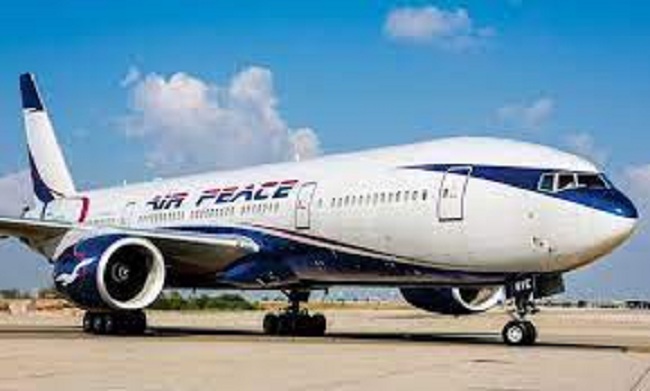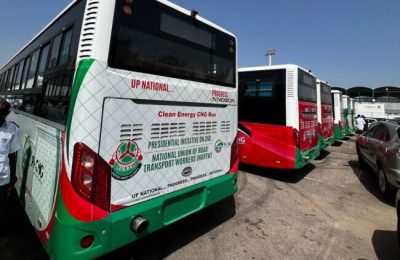As controversy continues over the refusal of the United Kingdom Authorities to allot a slot for Nigeria’s Air Peace airline at the Heathrow airport, stakeholders have attributed the UK authorities’ action to the failure of the Nigerian government to support its indigenous airlines.
This came just as the denial by the U.K to have Air Peace operate into Heathrow airport has been described as a violation of the dual designation policy existing between the two countries.
The reactions came following the revelation made the chairman of Air Peace, Mr Allen Onyema, during his appearance on Arise Television on how the UK authorities have proposed to the Nigerian carrier to operate into either London Stansted airport or London Gatwick instead of the more lucrative London Heathrow. Airport.

The Air Peace chairman rejected the offer by the U.K. authorities, citing the existing Bilateral Air Service Agreement (BASA) between the two countries which allows the two British airlines, British Airways and Virgin Atlantic, to operate into two Nigeria’s primary airports.
Onyema is advocating for the Nigerian carrier to be allowed to operate flights to London Heathrow as a primary airport as the U.K. Airlines have been enjoying flights into the two primary airports in Nigeria.
In his reaction, a former marketing director at the defunct Nigeria Airways, Mr Akinola Ojo, while describing BASA as purely based on reciprocity, however, said the same scenario has always recurred on the Nigeria/UK route.
According to Ojo, each time the UK reneged, Nigeria, rather than recisitng, will end up increasing the frequencies of the UK carriers.

His words: “Does it really make sense granting some foreign countries over 20 frequencies a week as of right when your own carriers cannot exercise their own frequencies either due to none-granting of slots to operate and or visas in some cases. There are procedures in addressing most of these abnormalities.
“This had been a kind of problem on the route. We refused then increase in frequency until Mrs Kema Chikwe as the then aviation minister convinced former President Olusegun Obasanjo who gave Virgin Airlines additional four frequencies to the seven operated by BA. Hence, all those abracadabra arrangements with both of them failed. The issue of slot should have been put to rest by the time UK later got over 20 frequencies per week. Frequencies without slots to operate has no meaning,” he said.
A public relations officer, Mr Simon Tumba in his reaction though argued that BA is not the one to dictate as it depends on the agreement signed, but however declared that the responsibility of allocating slots rests on the two countries to agree on the number of designated airlines and the frequencies. Everybody knows slots are big time in Heathrow, the most expensive in the world. However there’s no BASA that is lopsided. None! The problem is some countries do not fill their quota with their designated airlines. That’s the problem.There may be no slots in Heathrow. Air Peace may have to buy slots in Heathrow to have access. Access in Gatwick is easier than Heathrow. We all know slots in Heathrow are expensive and scarce.That should be the case but Heathrow is the busiest airport in the world and perhaps the most expensive. This is the reality.Those guys do their homework. They know the rules and understand the game. Most of them are even managed by English people.”
In his contribution, a former military commandant of the Lagos airport, Group Captain John Ojikutu, retired, who declared that the U.K. did not violate the BASA agreement it has with Nigeria, said rather than blame the U.K. that the blame should go to those in the “administration of our government that have no knowledge of the function and benefits of BASA. It is private arrangements for Air Peace to be giving Gatwick as was the case for Arik in 2013. Arik was lucky because those in the administration of our government at that time spoke on its behalf to operate into Heathrow. I wish same can be done for Air Peace. But I will prefer the airline is designated as a Flag Carrier and get full support of the government.
Management of the University of Ilorin has completed the second phase of a 500 metres asphalt overlay road project bankrolled by the Federal Government.
The project, which is in addition to phase one of 1.3 kilometres from the school gate to a distance after the university’s Jalala Estate junction, is part of the Federal Government’s 2022 Capital Appropriation Fund of 5.5 kilometres asphalt overlay on the existing road surface from the university’s entrance gate to the Senate Building roundabout.
It will be recalled that in May, the university had completed a 1.3-kilometre asphalt overlay project after the approval and the release of funds for the project from the Federal Government capital projects fund.
Speaking during the inspection/handing over meeting, Mr Zulqarnayn Bolajoko of the university’s Works Department said that more work would start as soon as funds are released by the Federal Government.
He stated that the project was being executed to improve and enhance movement of staff and students to and from the campus.
“The asphalt overlay is a project of the Federal Government and it is the university’s initiative to make the roads motorable for the commuters,” he added.
Mr Bolajoko, who is a deputy director at the institution’s Department of Works, advised motorists to be careful, stay safe and avoid overspeeding for their safety.
He disclosed that the management had also, in addition to the project, commenced the fixing of potholes from the university’s Stadium Junction to Trini Hostel Junction through the private hostel area to the Faculty of Pharmacy.
Speaking at the meeting, representative of the director, Physical Planning Unit (PPU), Mr Abdullah Ogundeji, appreciated the contractor for the job well done.







